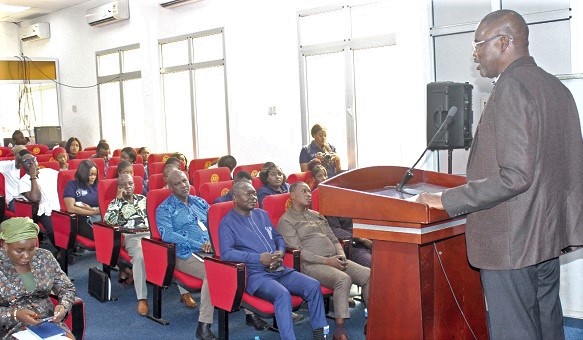
GWCL improves revenue mobilisation through electronic billing
The Ghana Water Company Limited (GWCL) has said it is currently mobilising an average monthly revenue of GH¢9.3 million from electronic payment of water bills.
The revenue is expected to rise to GH¢11.1 million by the end of 2022.
Advertisement
The Managing Director of GWCL, Dr Clifford A. Braimah, who made this known at a press conference in Accra yesterday (Thursday, December 22), said the electronic billing and payment system introduced in 2015 was improving revenue mobilisation and, therefore, urged customers to adopt the electronic mode of transacting business with them.
Dr Braimah explained that the company was able to mobilise an amount of GH¢1.7 million from electronic payment transactions in 2017, GH¢13.2 million in 2018 and GH¢64.3 million in 2021, an increase of 387.5 per cent.
“Total water revenue for 2017 was GH¢887.1 million and it increased to GH¢1.2 billion in 2021, representing a 36.3 per cent rise over the 2017 figure,” he added.
He warned customers who avoided paying their bills to desist from such acts, saying per the design of the new meters, water supply would immediately cut when they defaulted in paying their bills.
LICS department
Dr Braimah said the company’s Low Income Community Support (LICS) Department aimed at ensuring affordable, safe water and hygiene services to city residents, particularly persons living in informal settlements, was yielding results.
He indicated that in 2018, GWCL joined a network of water service providers, known as the WaterWorX, to support one another in realising access to reliable and affordable water services.
He said WaterWorX had since 2019 funded 3,600 connections in low-income communities alongside 34 kilometres of network extensions.
“In the next 18 months, 2,100 additional subsidised connections will be funded by WaterWorX.
“These interventions are expected to benefit over 75,000 people directly and three times the same number indirectly,” he said.
Interventions to address non-revenue water
Dr Braimah said the GWCL had deployed drones in the Upper West, Western and Eastern regions to monitor the quality of its raw water sources.
He said drones had also been deployed to read 509 meters installed at Tetegu, a low-income community, in less than 20 minutes since the September billing cycle.
Dr Braimah indicated that the company was working to reduce non-revenue water by one per cent annually by using technology.
“GWCL is extending distribution mains in all the regions to increase water supply. Such encouraging results amid all the challenges are an indication that the company is on track,” he added.




